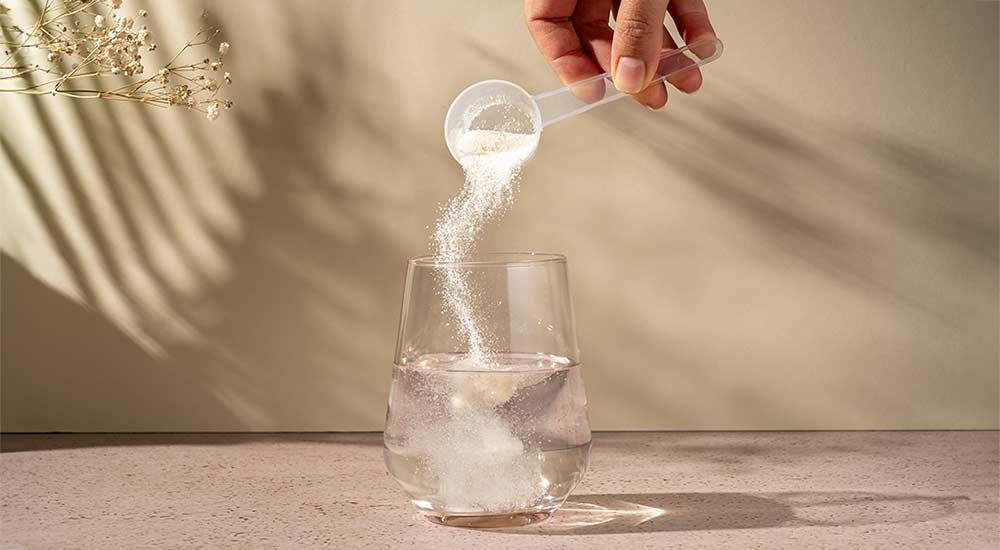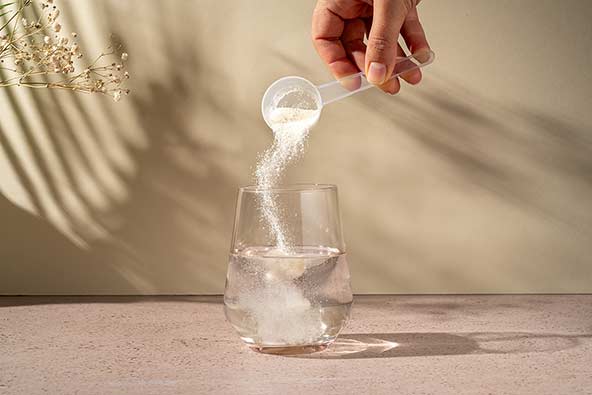When the body is exposed to high temperatures, it has to work harder to regulate body temperature and avoid overheating.
During hot summer days, it can therefore be extra important to think about fluid balance. The sun and light provide a lot of energy, but after a long day out in the heat or after physical exertion, it is common to feel a little tired and listless. It is important to drink enough water to replace what you sweat out - but if you drink a lot of water, it can be good to also think about maintaining the electrolyte balance.
What are electrolytes?
Electrolytes are minerals such as potassium and sodium that are excreted when we sweat, as well as magnesium and calcium. These minerals are important to us because they contribute to the maintenance of electrolyte balance, to normal energy levels and normal nerve and muscle function. When you sweat or lose fluids, the electrolyte balance in your body can be disturbed and you can feel tired and drained. This can be noticed in situations such as after a hot day at the beach, or in case of stomach ache and diarrhoea.


Here are some tips on when it might be good to take electrolytes
Fluid balance: Electrolytes, such as sodium and potassium, help maintain the proper amount of fluid in the body. They help regulate the flow of fluid in and out of the cells, which is essential for maintaining proper fluid balance. Magnesium contributes to electrolyte balance.
Muscle function: Electrolytes are involved in the transmission of nerve impulses and muscle contractions. Sodium, potassium, calcium and magnesium are examples of electrolytes that are needed for the muscles to function properly. With a lack of electrolytes, muscle cramps and weakness can occur. Calcium and magnesium contribute to normal muscle function.
Nerve function: Electrolyte balance plays a central role in the transmission of nerve impulses throughout the body. They help maintain the correct electrical charge in the nerve cells, which is necessary for optimal communication between the nerve cells. Potassium and magnesium contribute to the normal functioning of the nervous system.
Recovery after physical activity: During exercise and physical exertion, the body loses electrolytes through sweating. Drinking enough water and replacing electrolytes is important to restore fluid balance and promote faster recovery. Magnesium contributes to normal energy metabolism and to reducing fatigue and exhaustion.


Electrolytes should be taken in the right proportions and according to individual needs. For people who do not engage in vigorous physical activity or do not lose large amounts of electrolytes through sweat or other factors, a balanced diet can often provide adequate amounts of electrolytes. However, during hot summer days, during physical exertion, and in certain conditions, such as severe diarrhea or vomiting, it may be a good idea to supplement with electrolyte solutions to maintain normal fluid and electrolyte balance.

